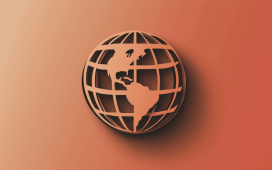Connect with top gaming leaders in Los Angeles at GamesBeat Summit 2023 this May 22-23. Register here.
During the week of GDC, the UN announced the need for global cooperation to avoid global catastrophe.
Ever since working in consumer tech in the early ‘90s, I’ve hated myself for encouraging people to buy video game consoles and those plastic CD and DVD casings that often ended up in landfill if not properly recycled. Anyone remember the E.T. landfill story?
Back then, every new PlayStation or Xbox meant a pile of plastic and precious metals were discarded during every new console generation. From a human perspective, I was also distressed that I was encouraging addictive behaviors. I knew that behind industry guidelines to “play responsibly” and “games are great for cognitive development”, it was a double-edged sword to be a part of an industry that surpasses the movie business. Today, game culture is so prevalent, that there is now even a gaming disorder listed by the World Health Organization.
I believe it’s time for the games industry to take a leadership stand in the world of ESG (environmental, social, governance) — an organization’s responsibility to environmental, societal and governance activities.
Event
GamesBeat Summit 2023
Join the GamesBeat community in Los Angeles this May 22-23. You’ll hear from the brightest minds within the gaming industry to share their updates on the latest developments.
During GDC, I was not selling the latest game or console. Instead, I was there to talk to organizations about developing sustainable leadership behaviors for our new post-pandemic and ESG-oriented era where people, product and planet need to be integral to the CEO’s primary objective.
I was happy to read GDC’s website showcasing its sustainability standard. It’s a nice start, however the UN is objecting to inappropriate greenwashing, and I believe that GDC’s sustainability page has work to do. I do not want to dismiss the organizers’ good work — it’s a great start.
With The Verge’s deconstruction of the PlayStation 4, showing its environmental impact, it’s clear there’s much work for the entire industry.
Games companies need to do more than find zero-carbon energy to run their servers, or design a game to help Gen Z become more environmentally or societally friendly or aware. The industry needs to radically adapt its mindset on what an ethical organization is — from the inside out.
Below, you’ll find a few ethical, environmental and societal questions for games industry leaders to answer that your CFO or Chief Sustainability Officer will ask in the next few years when governance will hold organizations to more rigorous and ethical standards of business:
Merchandise: Environmental impact
- Have you assessed the source of your merchandise? How do the manufacturers treat their workers? Where do they source their materials? How do they dispose of chemicals? Is their working environment (office, factory) safe?
- What’s the carbon footprint of the merchandise, before transportation?
- Can you source your merchandise from a domestic location to reduce your carbon footprint?
- How biodegradable is your merchandise?
- Is your merchandise single use?
Travel: Environmental impact
- How necessary is it to conduct media events or buyer meetings requiring international travel?
- What is a more cost-effective alternative for your media or buyers to assess your product?
People: Societal impact
- Do your employees state that modern DEIJ needs are met?
- Has your leadership team adapted to the US Surgeon General’s workplace well-being framework?
- Do your employees feel like they are working for a toxic boss?
- Does your organization adapt fast enough to support leadership advancement?
- Do your domestic and international suppliers enjoy fair working conditions and terms?
- How can you lead a safer gaming environment and culture online, and at home?
Product: Societal and environmental impact
- How is your product impacting mental health?
- Can you account for the carbon footprint of your product?
- Do you have an active plan to adjust every part of your environmental and societal issues?
I hope to see GDC organizers actively advocating for the industry to drive a higher standard of business and productivity. It’s going to take a lot more than a digital tote bag to influence the industry at large. We are all counting on business leaders to do the right thing.
Caroline Stokes is a certified executive coach, author of Elephants Before Unicorns: Emotionally Intelligent Strategies to Save Your Company, and an advocate for organizations evolving alongside ESG norms before mandatory change in 2030.
Caroline thrives in environments where she can help leaders evolve. She was employee #9 at Sony to launch PlayStation in Europe during 1995; worked in DotCom during 9/11 in APAC; and worked in mobile and the growth of SaaS during the 2008/2009 financial crisis. As an executive coach and business strategist, she supports leaders wanting to transform their organizations for our new era.
GamesBeat’s creed when covering the game industry is “where passion meets business.” What does this mean? We want to tell you how the news matters to you — not just as a decision-maker at a game studio, but also as a fan of games. Whether you read our articles, listen to our podcasts, or watch our videos, GamesBeat will help you learn about the industry and enjoy engaging with it. Discover our Briefings.







